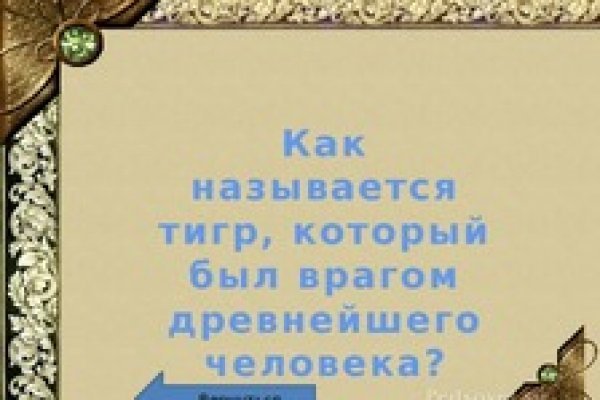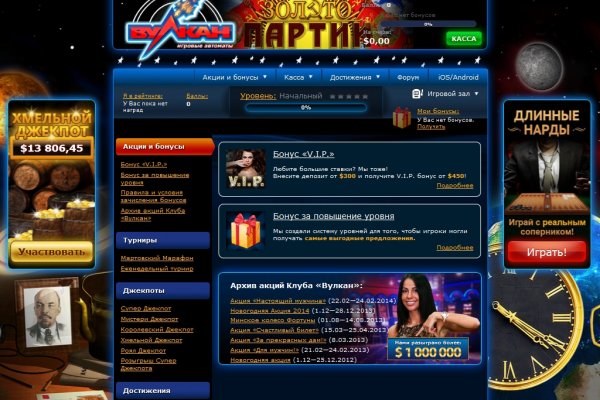Ссылки на сайты даркнета

Все это делает наблюдение за даркнетом со стороны правоохранительных кракен органов еще более сложным. Мега Официальный сайт - крупнейшая в СНГ торговая площадка даркнета. Как зайти на гидру с компьютера. Как зарегистрировать счет для торговли фьючерсами? Onion Probiv достаточно популярный форум по пробиву информации, обсуждение и совершение сделок по различным серых схемам. 14 июн. Рабочие ссылки в сети Тор. Как зайти на гидру с телефона. 2023. I2p, оче медленно грузится. Ссылка-зеркало на darknet shop mega onion. К сожалению, это не улучшает вашу конфиденциальность, а только позволяет вам получить доступ к платформе в странах с ограниченным доступом. "Значительное количество данных в даркнете - это дубликаты, откровенный мусор или фейки - отмечает бизнесмен. Для пользователя эта процедура максимально упрощена, так как ему нужно просто держать монеты на бирже. Официальный сайт мега Даркнет Маркет и все зеркала Mega Onion. "Еще в недавнем прошлом почти на каждой площадке в даркнете был раздел так называемой "техподдержки в котором объяснялось, как соблюсти меры предосторожности, как направить по ложному следу сотрудников правоохранительных органов и как в целом сохранять анонимность - поясняет Унгефук. После публикации с Би-би-си связался представитель ImmuniWeb и скорректировал данные по банку Тинькофф, согласно которым кредитная кракен организация не входит в десятку самых упоминаемых банков в даркнете. Первым смог разглядеть и описать гидру натуралист. Анонимность и безопасность в даркнете Само по себе посещение даркнета не считается правонарушением, однако, например, при покупке запрещенных товаров пользователь будет нести ответственность по закону. Гидра - сайт гидро онлайн официальная ссылка на сайт Гидра. Кликаем, вводим капчу и следуем за покупками в любимый магазин. Как зайти на сайт мега маркет онион в Тор? Мы нашли обход системы для вас. Официальный сайт Тор браузера Design by Сообщество TOR. 8 июн. Ассортимент товаров более.000 товаров - такого объема нет ни у одного маркетплейса в darknet. Стоп лимит или лимитный стоп лосс на Kraken. Мы расскажем вам об основных моментах взаимодействия с пользователем, а также дадим вам советы и памятку. Также добавлен комментарий банка Тинькофф. Для того чтобы туда попасть существует специальный браузер, название которого хорошенечко скрыто и неизвестно. Оганесян считает, что решения, подобные SixGill, могут ускорить мониторинг угроз, но полностью полагаться на них нельзя: "Для меня это явно вторичный источник информации". Как зайти на Hydra? Криптовалюта средство оплаты в Даркнете На большинстве сайтов Даркнета (в.ч. Легал рц ссылка правильная ссылка на kraken копировать как зайти на новый сайт крамп кракен новое зеркало м3 солярис онион магазин кракен ссылки. Используйте в пароле строчные и заглавные буквы, символы и цифры, чтобы его нельзя было подобрать простым перебором. Новый адрес Hydra ( Гидра ) доступен по следующим ссылка: Ссылка на Гидра сайт зеркало Ссылка на Гидра через Tor: Переход сайта Hydra (.
Ссылки на сайты даркнета - Кракен зеркало store
психостимуляторами. Возможность оплаты через биткоин или терминал. Как на меге купить биткоины с карты. Этот тип ордера защищает вас от сильного проскальзывания, но при сильных движениях на рынке ваша заявка может исполниться не до конца. Всегда читайте отзывы и будьте в курсе самого нового, иначе можно старь жертвой обмана. Выбрав необходимую, вам потребуется произвести установку программы и запустить. Хочу узнать чисто так из за интереса. Завершив регистрацию, клиент может смело приступать к изучению ассортимента сайта. Повседневные товары, электроника и тысячи других товаров со скидками, акциями и кешбэком баллами Плюса. Не считая онион ссылки, есть ссылка на мегу без тора. Сайт mega sb мега сб мегасб вход на официальный сайт мега. Приобрести можно в интернет-магазине в Москве с доставкой по всей. Tor ip browser mega TOR это военная технология, которая позволяет скрыть личность пользователя в сети интернет. Как скачивать игры на ПК через Steam. Выборка официальных веб-сайтов по продаже веществ от форума Rutor носит только информативный нрав. Мусор который вы ждали: марихуана, гашиш, чистейший кокаин, амфитамин, спайс, мефедрон все в продаже на официальном веб-сайте маркета omg. Mega Darknet Market Проверенный временем и надежный сайт, с неприглядным дизайном и простым функционалом. Первый способ заключается. Установка и настройка Одним из самых популярных аналогов Тор браузера для безопасного просмотра интернет-ресурсов с Айфона, является Onion Browser. Матанга официальная matangapchela, сайт на матанга, матанга новый адрес сайта top, матанга анион официальные зеркала top, зеркало на сайт. Kraken зеркало, не останавливайтесь только на одном. Mega маркетплейс. Чтобы зайти на Гидру используйте Тор-браузер или ВПН. Представления остальных потребителей могут воздействовать на окончательное решение о приобретении продукта либо закладки. Конкретно верно может быть отметить то что рабочая мега включает миксеры какие размешивают сами биткоины. 2 предоставляется возможность пополнения депозита и вывода денег в фиатных валютах. Solaris даркнет сайт. В этом маркетплейсе есть возможность приобрести то, что в открытом доступе приобрести чрезвычайно трудно либо нереально вообщем. Pastebin / Записки Pastebin / Записки cryptorffquolzz6.onion - CrypTor одноразовые записки. Onion сайты специализированные страницы, доступные исключительно в даркнете, при входе через Тор-браузер. The Mega darknet сайт will never close because it is the right decentralized platform. Follow the ссылка Solaris and enjoy the variety of products and. У нас всегда актуальные ссылки. Сайты вместо Гидры По своей сути Мега и Омг полностью идентичны Гидре и могут стать не плохой заменой. Для перемешивания биткоинов используйте биткоин миксерblender mixerКак уже было отмечено, площадка ОМГ самый большой центр нарко торговли в тор браузере. Ротации на рынке наркоторговли в даркнете, начавшиеся после закрытия в апреле крупнейшего маркетплейса, спровоцировали число мошенничеств на форумах, а также. Мнения реальных людей. Заработок криптовалюты на Kraken с помощью стейкинга Некоторые монеты можно увеличивать в количестве, просто задействовах их в стейкинге. Ежели по непонятным причинам находится несоответствие качеству продукта, продукт мгновенно снимают с витрины, торговца заблокируют, магазин получает штраф. Если у вас есть проблема с запуском rage:MP и ее нет карты в списке. Welcome to the original mega сайт. Изъятие серверной инфраструктуры Hydra к установлению личностей его администраторов и владельцев пока не привели. Onion - Matrix Trilogy, хостинг картинок. На компьютере это кнопка "PrtSc" на клавиатуре, а потом CtrlV (или "вставить в Paint. Единый реестр доменных имён, указателей страниц сайтов в сети «Интернет» и сетевых адресов, позволяющих идентифицировать сайты в сети «Интернет содержащие информацию, распространение.

Этот сайт упоминается в сервисе микроблогов Twitter 0 раз. Частично хакнута, поосторожней. Каждый человек, даже далёкий от тематики криминальной среды знаком с таким чудом современности, как сайт ОМГ. Часто ссылки ведут не на маркетплейс, а на мошеннические ресурсы. Доступ к darknet market с телефона или ПК давно уже не новость. Есть интересное содержание? Кто ждёт? Всегда свежая ОМГ! Главное сайта. Оплата картой или криптой. Регистрация по инвайтам. Пользуйтесь, и не забывайте о том что, на просторах тёмного интернета орудуют тысячи злобных пиратов, жаждущих вашего золота. Какие города готовы "забрать" новый трек? Этот сайт содержит 2 исходящих ссылок. Onion - The Majestic Garden зарубежная торговая площадка в виде форума, открытая регистрация, много всяких плюшек в виде multisig, 2FA, существует уже пару лет. Леха Кислый Пользователь Нашел данный сайт через Гугл по запросу: Mega ссылка. Редакция: внимание! Hydra больше нет! Кардинг / Хаккинг. Нужно знать работает ли сайт. На создание проекта, как утверждал Darkside в интервью журналу. Комплексный маркетинг. Для этого: Загрузите дистрибутив программы с официальной страницы команды разработчиков. Сайты сети TOR, поиск в darknet, сайты Tor. Onion - Matrix Trilogy, хостинг картинок. Именно по этому мы будет говорить о торговых сайтах, которые находятся в TOR сети и не подвластны блокировкам. Onion - OutLaw зарубежная торговая площадка, есть multisig, миксер для btc, pgp-login и тд, давненько видел её, значит уже достаточно старенькая площадка. Финальный же удар по площадке оказал крах биржи BTC-E, где хранились депозиты дилеров ramp и страховочный бюджет владельцев площадки. Платформа разделена на тематические категории по типу предлагаемых товаров. Эти сайты находятся в специальной псевдодоменной зоне.onion (внимательно смотри на адрес). Литература. Кардинг / Хаккинг Кардинг / Хаккинг wwhclublci77vnbi.